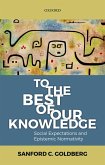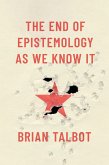We ought to opt for the best-that is, we ought to choose the option that is best in terms of whatever ultimately matters. So, if maximizing happiness is what ultimately matters, then we ought to perform the option that results in the most happiness. And if, instead, abiding by the Golden Rule is what ultimately matters, then we ought to perform the option that best abides by this rule. However, even if we know what ultimately matters, this is not always sufficient for determining which option we ought to perform. There are other questions that we need to consider as well. Which events are options for us? How do we rank our options-in terms of their own goodness or in terms of the goodness of the best options that entail them? How exactly does that which ultimately matters determine which options we ought to perform? In
Opting for the Best, Douglas W. Portmore focuses on these three questions, which he argues can best be answered by putting aside any specific determination of what ultimately matters. He argues that tackling these three questions is crucial to solving many of the puzzles concerning what we ought to do, including those involving supererogation, indeterminate outcomes, overdetermined outcomes, predictable future misbehavior, and good acts that entail bad acts, among others. Engaging with arguments in areas as wide-ranging as action theory and deontic logic, the solutions that Portmore offers systematize our thinking about some of the most complex issues in practical philosophy.
Dieser Download kann aus rechtlichen Gründen nur mit Rechnungsadresse in A, B, BG, CY, CZ, D, DK, EW, E, FIN, F, GR, HR, H, IRL, I, LT, L, LR, M, NL, PL, P, R, S, SLO, SK ausgeliefert werden.









